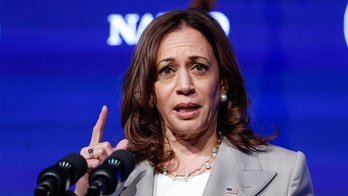OAKLAND, Calif. -- Oakland Mayor Jean Quan made history in January when she became the first Asian American woman to lead a major U.S. city. Less than a year later, the Democratic mayor is quickly losing support on all sides of the political spectrum, mostly over her handling of the city's violent Occupy Wall Street protests that drew heavy scrutiny.
Quan's critics say she has struggled to formulate a coherent response to the Occupy encampment that has overtaken the plaza in front of Oakland City Hall for the past few weeks. Police dismantled the camp last week before Quan allowed protesters to return a day later.
"It was sort of remarkable that she was able to alienate both sides," said University of San Francisco political scientist Corey Cook of Quan's relationship with protesters and police. "She has no friends at this point."
The "Occupy" movement, which began six weeks ago in New York City to decry corporate influence in government and wealth inequality, has spread to cities large and small across the country and around the world. Demonstrators have spent weeks camped out in parks, wearing at the patience of city officials -- even those like Quan who have expressed some level of support for their cause.
Quan, 62, a former school board president and city council member, was surprisingly elected mayor last year, succeeding Ron Dellums. She defeated the heavily-favored front-runner, former state Senate President Pro Tem Don Perata, in a narrow race thanks to the city's ranked-choice voting system.
Since then, Oakland's city attorney and police chief have both quit over philosophical differences with Quan and dozens of residents have recently signed a petition seeking to recall her.
But Dan Siegel, Quan's unpaid legal adviser and longtime friend, says she's doing an admirable job under the circumstances. Siegel, who teamed with Quan and her husband in the fight to create an ethnic studies program at the nearby University California, Berkeley in the 1960s, said the mayor hasn't gotten enough credit for balancing a budget, working with local unions seeking some concessions and hiring a reputable new city administrator.
"These are not ordinary times," Siegel said. "It's difficult, but that's what she signed up for."
Quan told reporters last week that being mayor definitely has been challenging.
"This is a pretty complex job, so I have to take everybody into account," Quan said.
Quan said she and the city support the Occupy Oakland movement and its planned general strike Wednesday, when protesters plan several large gatherings through downtown, culminating in an early evening march to the Port of Oakland.
City offices are to remain open Wednesday, but City Administrator Deanna Santana said workers can use vacation or other paid time off to participate in the strike.
Quan said she hoped Wednesday's strike would be peaceful and that she was working with police to ensure the protesters' issues are "front and center."
"The pro-99 percent activists -- whose cause I support -- will have the freedom to get their message across without the conflict that marred last week's events," Quan said in a statement Tuesday. "Although getting the balance right is never an easy task, in Oakland we are committed to honoring free speech and protecting public safety."
Despite Quan's vocal support for the Occupy movement, protesters heckled and booed her when she tried to speak to the group last week, sending her retreating into City Hall.
"You need a true leader. This is all too much for her. It's not her time," said Ken Houston, an Oakland resident who owns a local construction business and has spent several nights at the Occupy encampment.
The initial crackdown has led prominent liberals to call for her resignation, and last week a group of Oakland residents filed a petition seeking to recall Quan, saying she's ignoring public safety as the city's most pressing issue.
Quan fired back Monday, saying that "the last thing we need is a divisive and expensive recall campaign. In 20 years of serving Oakland, my only agenda has been to work hard for our diverse city."
Yet, her stance on the Occupy Oakland protests has furthered strained her thin relationship with the city's police force.
Police are upset they were asked to clear the protesters' encampment a week ago, only to have the camp return the next day. Last week's raid, along with the tear gas-clouded standoff with marchers and other law enforcement actions related to the protest, cost Oakland $1 million, the police union said in an open letter to Quan on Tuesday.
The letter also questioned why the city plans to beef up its police presence for Wednesday's strike while giving other city workers leeway to participate.
"Is it the City's intention to have City employees on both sides of a skirmish line?" the letter said.
The latest salvo by police comes weeks after popular former Chief Anthony Batts resigned last month after just two years on the job. Batts cited frustration about not getting the resources needed to do his job.
Joseph Haraburda, who heads the Oakland Chamber of Commerce, and has been publicly critical of Quan over the city's high crime rate, said Tuesday that her decision to allow protesters back into the plaza was a "grave error" that is hurting downtown stores, banks and restaurants.
"It's an intolerable situation," Haraburda said. "There needs to be an end game. When will this end? As long as this continues, the impact on business is going to be a downward spiral."





